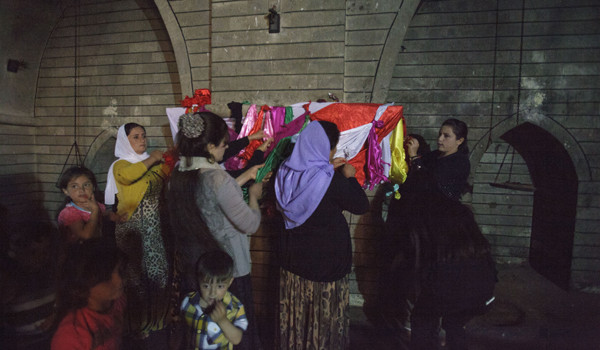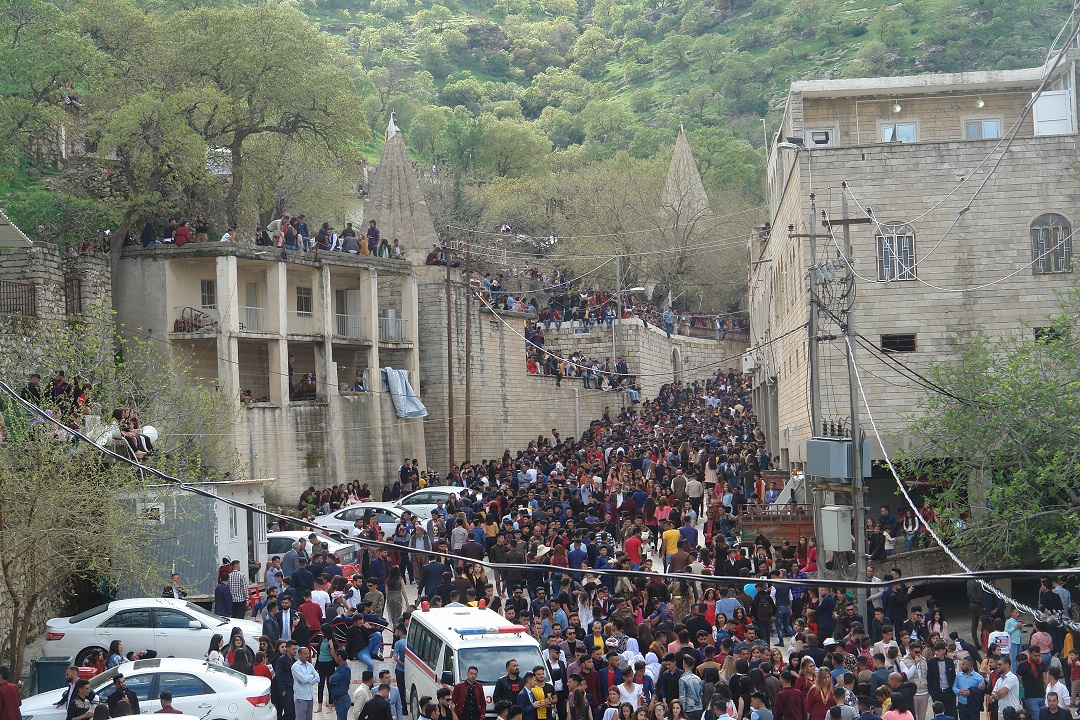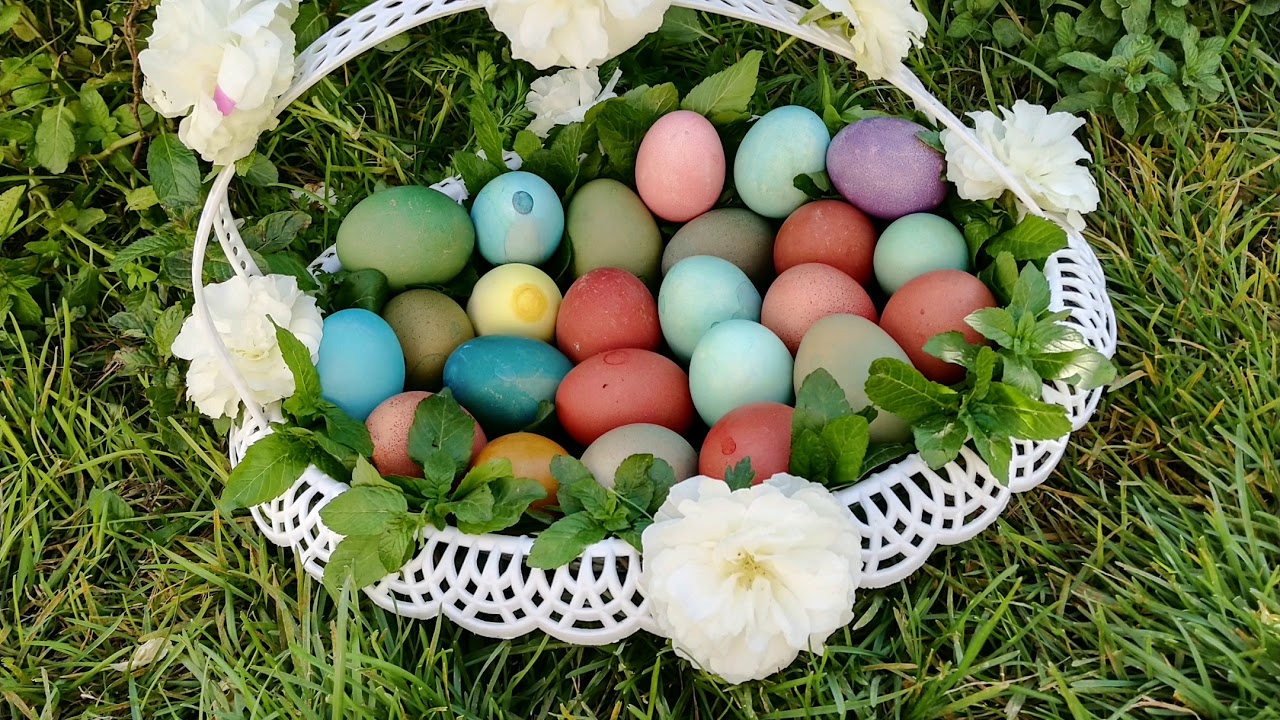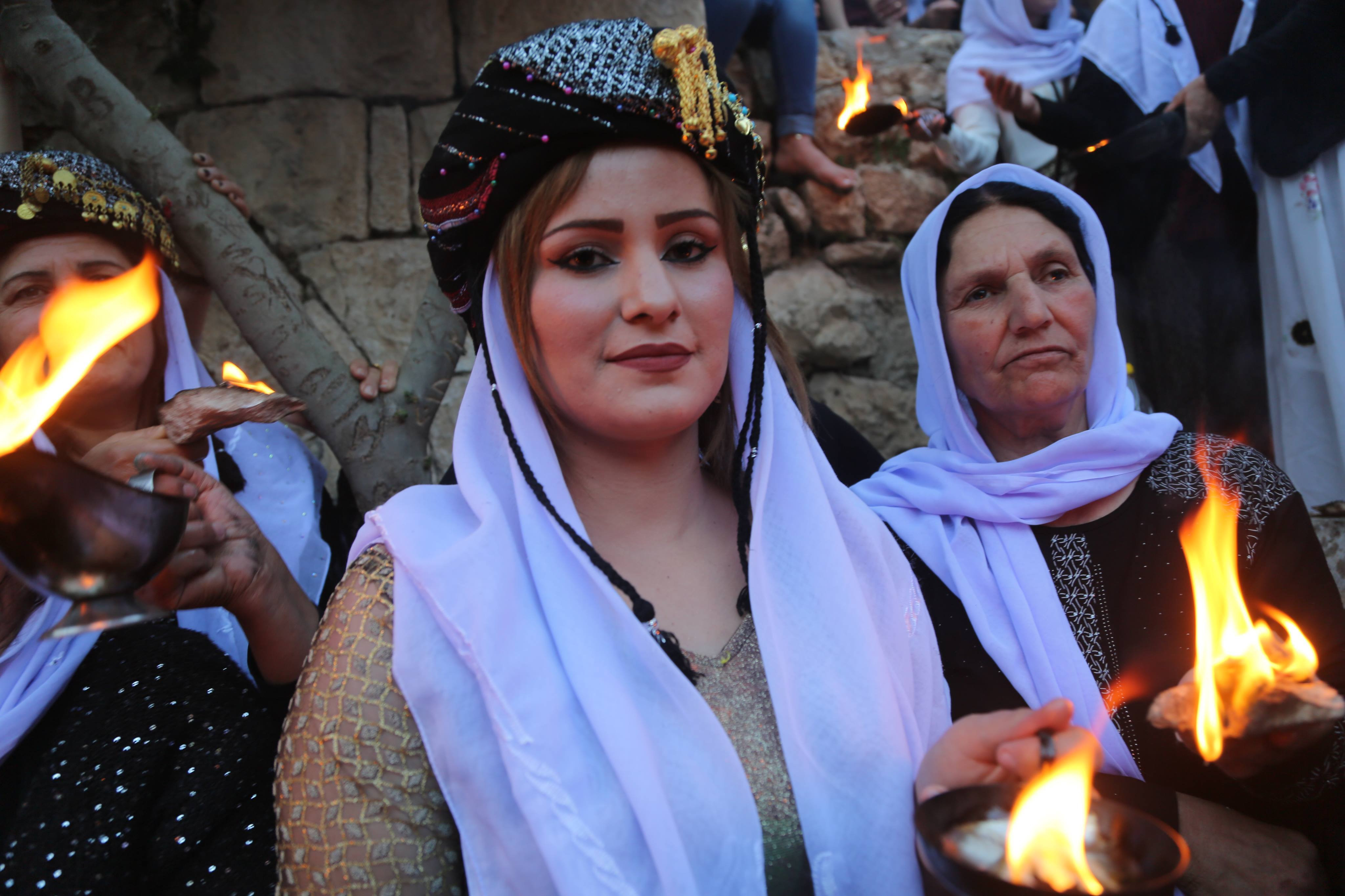Charshama Sur meaning the Red Wednesday in Kurmanji Kurdish, marking the New Year for the Ezidi (Yazidi) community, is one of the oldest ceremonies for the Ezidis. It is celebrated annually on the third Wednesday of April. Charshama Sur, translated as Red Wednesday, is a sacred day and widely celebrated by the Ezidis.
April for Ezidis
Ezidis believe that April is a sacred month of spring and is considered the bride of the year. The month is also seen as the symbol of renaissance and rehabilitation. The third Wednesday of April marks the day Melek Taws, or the Peacock Angle, descended on earth. He brought grace and mercy to humanity and nature was flourished with beauty.
The preparations
On the evening of Tuesday, the Ezidi followers start the preparation for Charshama Sur with boiling and coloring eggs. On Wednesday, they light 365 candles and hang flowers on the walls and the doors of their houses, which might be why it is called Charshama Sur, which in Kurdish means Red Wednesday.

Women tie knots and make wishes in Lalish temple as an ancient Ezidi tradition.
Charshama (Wednesday): The sacred day
According to Ezidi Religion, the first Wednesday of the Eastern Orthodox calendar is marked as the first day of the New Year. On this day, the meltdown of ice age begins and the creation follows. Another belief is that Friday is the day God started creating the universe, but Wednesday is the day it was completed. Ezidis follow Julian calendar, which is 13 days different to Georgian Calendar.
How does the ceremony begin?
The first activity of Charshama Sur starts in Lalish Temple, when Baba Sheikh, the spiritual Ezidi leader, with other religious seniors, lights up the first fire. Later, the Ezidis light 365 candles in the same Temple. The 365 candles might represent the days of the year. The reason for lighting up the fires is to move away from the evil souls, which pave the way for Melek Taws arrival, who brings grace and mercy.
The families then visit each other. Muslim families usually visit their Ezidi neighbors to congratulate them on their feast. Later in the day, different traditional games are played.

The reason for the colorful eggs
One of the particular food of the Charshama Sur is boiled eggs. For Ezidis, eggs symbolize the sphere shape of the earth as this ceremony is linked to nature and renaissance. The colorful eggs are representing how colorful the earth gets during spring, which welcomes the start of the Ezidi year.
Charshama Sur in displacement and in the time of coronavirus
This year the Ezidi celebrate Charshama Sur differently for the first time. Each of them stays and celebrates the ceremony at home instead of gathering at the holy Lalish Temple.
Due to the outbreaks of coronavirus, religious places, including temples, churches, and mosques, are closed. A curfew aimed at preventing the spread of the virus is enforced by both the regional and federal governments.
Despite the spread of the virus, still, the majority of Ezidis live in displacement due to the aftermath of the war in the Sinjar region.

There are no accurate figures of Ezidi religion followers. Kurdistan Regional Governmnet KRG figures show they are around 550,000 population. Roughly, 200,00 Ezidis live in refugee camps currently, and more than 100,000 immigrated abroad, especially after so-called Islamic State in Iraq and Syria ISIS attack on Shingal back in August 2014. IS extremist fighters have taken 6417 Ezidi girls and women as sex slaves. Thousands of civilians were slaughtered and buried in tens of mass and individual graves.
Charshama Sur is a ceremony for renewal and happiness. However, a significant number of Ezidis are celebrating Charshama Sur either in displacement or abroad in exile. The Ezidis returned home are still worried about their fellows in IDP camps and those in exile.





